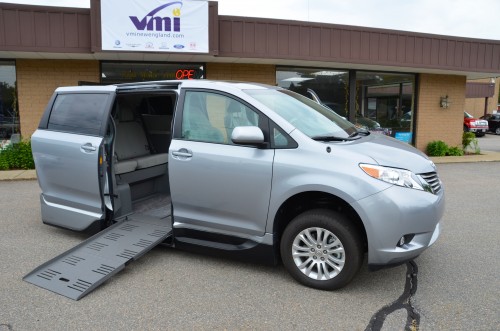Massachusetts Office on Disability (MOD)
Description:
The Massachusetts Office on Disability (MOD) is the state advocacy agency for people with disabilities. MOD’s goal is to make sure that people with disabilities have the legal rights, opportunities, support services, and accommodations they need to take part in all aspects of life in Massachusetts. MOD helps people of all ages.
One of MOD’s main duties is to make sure that the state government, the local governments, and private organizations comply with the Americans with Disabilities Act. MOD informs residents about their rights under the law, investigates complaints, and works to correct any violations. MOD services are free.
Services: The Massachusetts Office of Disability has three main programs:
- The Government Services Program provides technical assistance and advice to state and local governments on all disability-related issues. MOD makes sure that government regulations and policies meet the requirements of the Americans with Disabilities Act. MOD offers guidance to public service agencies and makes public policy recommendations on behalf of residents with disabilities.
- The Client Services Program helps individuals who need help with disability-related problems. MOD operates an information and referral system to help residents find the services they need and learn about their legal rights. MOD also investigates complaints and helps correct civil rights violations. MOD’s Client Assistance Program (CAP) helps residents who are having problems with federally funded vocational rehabilitation and independent living programs.
- The Community Services Program helps communities become more responsive to the needs of residents with disabilities. MOD trains individuals and community organizations to advocate for the rights of the disabled. MOD offers technical assistance and information about accessibility laws. The goal is to improve access to public and private places, programs, and services for people with all types of disabilities.
Contact Information:
Massachusetts Office on Disability
One Ashburton Place, Room 1305
Boston, MA 02108
Telephone:617-727-7440
Toll-free: Voice/TTY: 800-322-2020
Fax: 617-727-0965
Web site: Massachusetts Office on Disability (MOD)
Massachusetts Rehabilitation Commission (MRC)
Description:
The Massachusetts Rehabilitation Commission (MRC) helps people with disabilities find employment and live independently. The MRC serves Massachusetts residents age 18 and older. The MRC helps people with all types of disabilities except blindness. Legally blind residents can get services from the Massachusetts Commission for the Blind.
Services:
- The MRC is the state agency in Massachusetts responsible for Vocational Rehabilitation (VR), Community Services (CS), and Disability Determination Services (DDS). The MRC also assists with public benefit programs, housing, transportation, and consumer issues. Some MRC programs and services have specific eligibility requirements. Most are free.
- The Vocational Rehabilitation (VR) Program helps people with disabilities find work or go back to work. The VR program works with various organizations in the community to help create jobs for Massachusetts residents with disabilities.
- The Office of Community Services (CS) offers a variety of services to help people with disabilities live independently in their communities:
- The Brain Injury and Statewide Specialized Community Services (BISSCS) program helps Massachusetts residents who have externally caused traumatic brain injuries.
- Protective Services tries to prevent the physical, emotional, or sexual abuse of people with disabilities by their caregivers.
- Independent Living Centers provide advocacy, personal care management, and independent living skills training.
- The T22 (Turning 22) Independent Living Support Program helps young people with physical mobility disabilities who want to live independently in their communities.
- The Home Care Assistance Program for disabled adults under age 60 provides help with homemaking tasks (see Home Care Assistance Program).
- Other in-home and community living support services are also available.
- The Assistive Technology (AT) Program buys and installs assistive devices and provides training and follow-up for users.
- Disability Determination Services (DDS), funded by the Social Security Administration (SSA), determines medical eligibility for Supplemental Security Income (SSI) and Social Security Disability Insurance (SSDI) benefits. Disability examiners use medical and vocational information to make their decisions.
MassMATCH
MassMATCH is a statewide program to help Massachusetts residents with disabilities find, pay for, and use assistive technology (AT) that can make a difference in their lives. The MassMatch web site offers information and advice about:
- assistive technology (AT) products
- AT demonstration centers
- AT funding sources (insurance, loans, government assistance, private charities)
- where to buy, borrow, swap, and sell AT equipment
MassMATCH (Maximize Assistive Technology in Consumers’ Hands) is a partnership between the Massachusetts Rehabilitation Commission, other state human services agencies, and community-based organizations.
Contact Information:
Massachusetts Rehabilitation Commission
Fort Point Place, Suite 600
27 Wormwood Street
Boston, MA 02210-1616
Telephone: Voice/TTY: 617-204-3600
Toll-free: Voice/TTY: 1-800-245-6543
Web site: MassMATCH
Massachusetts Commission for the Blind (MCB)
Description:
The Massachusetts Commission for the Blind (MCB) provides rehabilitation and social services to legally blind Massachusetts residents of all ages. These services help people who are legally blind live independently as active members of their communities. The MCB contacts all legally blind people in the state to offer support services.
Eye care providers in Massachusetts are required by law to report all cases of legal blindness to the MCB. The MCB keeps a confidential registry of all legally blind people in the state. The Commission issues Certificates of Legal Blindness to people on its register. These certificates allow legally blind residents to get exemptions and deductions on income tax, property tax, and auto excise tax. The Commission also issues an identification card, similar to a driver’s license, for personal identification and proof of legal blindness.
Services: The Massachusetts Commission for the Blind provides the following services:
- Vocational Rehabilitation (VR), including diagnostic studies, counseling and guidance, individual plans for employment (IPE), restorative and training services, rehabilitation and mobility instruction, assistive technology, adaptive housing, job placement, and post-employment services
- Assistive technology
- Independent living social services, including homemaking assistance, assistive devices, mobility instruction, and peer support groups
- Specialized services for blind seniors (BRIDGE program)
- Specialized services for blind children, including referrals for early intervention, public benefits, respite care, and socialization and recreation programs
- Specialized services for blind/deaf individuals and others with multiple disabilities
- Rehabilitation instruction, including Braille and typing, use of low-vision devices, labeling and record keeping, food preparation, home safety, and self-care techniques
- Orientation and mobility instruction, including guide dogs
- MassHealth services for financially eligible people who are legally blind, including long-term care services, hospital services, personal care attendants, private duty nursing, and transportation services
- Consumer assistance and advocacy for issues related to blindness such as housing and job discrimination, guide dog issues, or transportation problems
Most services are offered free of charge to all registered legally blind Massachusetts residents. Some services have additional eligibility requirements.
Contact Information:
Massachusetts Commission for the Blind
48 Boylston Street
Boston, MA 02111
Toll-free Voice: 800-392-6450
Toll-free TDD: 800-392-6556
Fax: 617-626-7685
Web site: Massachusetts Commission for the Blind (MCB)
Vocational Rehabilitation Client Services Manual
Technology for the Blind
Laws and Regulations
Locations of MCB offices
Massachusetts Commission for the Deaf and Hard of Hearing (MCDHH)
Description:
The Massachusetts Commission for the Deaf and Hard of Hearing (MCDHH) is the state government agency that works on behalf of Massachusetts residents who are deaf or hard-of-hearing. The MCDHH serves as an advocate to make sure that deaf and hard-of-hearing residents have the same access to information, services, education, and other opportunities as the hearing population.
Services: Some of the services that the MCDHH provides are:
- Communication access, training, and technology services
- Case management services, including specialized services for children
- Interpreter and CART translation services
Note: CART (Communication Access Realtime Translation) service translates spoken words into a visual print display that can be read on a computer monitor or other display device.
- Independent Living Programs, including peer mentoring, assistive technology, consumer education, self-advocacy, and other independent living skills
Contact Information:
Massachusetts Commission for the Deaf and Hard of Hearing (MCDHH)
Executive Office of Health and Human Services
600 Washington Street
Boston, MA 02111
Telephone: 617-740-1600 / TTY: 617-740-1700
Toll-free: Voice: 1-800-882-1155 / TTY: 1-800-530-7570
Fax: 617-740-1880
Web site: Massachusetts Commission for the Deaf and Hard of Hearing (MCDHH)
The Savvy Consumer’s Guide to Hearing Loss
MCDHH Resource Directory
Regional Offices of the MCDHH
Interpreter and CART Services
Independent Living Services
Massachusetts Department of Mental Health (DMH)
Description:
The Massachusetts Department of Mental Health is the state agency that oversees treatment programs, support services, regulations, and public policy for Massachusetts residents with mental illness. The DMH supports a community-based system of care.
The Department of Mental Health serves adults with long-term or serious mental illness, and children and adolescents with serious emotional disturbances. For adults, the mental disorder must be persistent and must interfere with the ability to carry out daily life activities. For children, the disorder must limit the child’s ability to function in family, school, or community activities.
Residents must file an application and get DMH approval before they can get services. Applications are available on the DMH web site at DMH Service Application Forms and Appeal Guidelines. Applicants can get short-term services while waiting for DMH approval for continuing care.
Services:
The DMH provides continuing care services to Massachusetts residents who cannot get needed services from other agencies or programs. DMH services include:
- continuing care inpatient facilities
- residential treatment centers
- in-home treatment
- outpatient services
- skills training
- supported employment
- case management
Contact Information:
Massachusetts Department of Mental Health (DMH)
Central Office
25 Staniford Street
Boston, MA 02114
Telephone: 617-626-8000
TTY: 617-727-9842
E-mail: DMH Email
Web site: Massachusetts Department of Mental Health
DMH Local Offices: DMH Offices
Massachusetts Department of Developmental Services (DDS)
Description:
The Massachusetts Department of Developmental Services (DDS) is the state agency that provides support services to Massachusetts residents with intellectual disabilities. The DDS works with many provider agencies throughout the state to offer services to adults and children and their caregivers. Individuals with intellectual disabilities and their families play an active role in making decisions about their lives and in choosing the support services they want and need.
The DDS has an application for services that must be completed before services can be approved. The application is available on the DDS web site: Application for DDS Eligibility
Services: The DDS offers a wide range of support services for adults, including:
- Service coordination
- Housing options
- Employment skills training and transportation to work
- Non-work related skills training
- Family support services, including respite care
- Life skills training and support (food shopping, cooking, etc.)
DDS’s services for children include:
- Service coordination
- Family support services, including respite care
- Partnership program for families of children with significant health care needs
- Autism support centers
- After-school and summer camp programs
Contact Information:
Massachusetts Department of Developmental Services
Central Office
500 Harrison Avenue
Boston, MA 02118
Telephone: Voice: 617-727-5608
TTY: 617-624-7783
Fax: 617-624-7577
Web site: Massachusetts Department of Developmental Services (DDS)
Local DDS offices: DDS Area Office Locator
Disability Law Center (DLC)
Description:
The Disability Law Center (DLC) is a private non-profit law firm that gives free legal assistance to Massachusetts residents with disabilities who have been discriminated against because of their disability.
The Disability Law Center helps people with all types of disabilities, including physical, psychiatric, sensory, and cognitive. The DLC provides legal help with problems such as discrimination, abuse or neglect, or denial of services, when they are related to a person’s disability.
Services:
Services include information and referral, technical assistance, legal representation for individuals and groups, and advocacy. The Disability Law Center helps with disability-related legal problems in these areas:
- Access to community services
- Special education
- Health care
- Disability benefits
- Rights and conditions in facilities
The DLC does not have the resources to help everyone who has a disability-related legal problem. The DLC sets priorities each year based on the needs of the community. See DLC Priorities. The DLC chooses cases that will have the most impact on the lives of people with disabilities.
Contact Information:
Disability Law Center (DLC)
11 Beacon Street, Suite 925
Boston, MA 02108
Voice telephone: 617-723-8455 / 800-872-9992
TTY: 617-227-9464 / 800-381-0577
Web site: Disability Law Center
DisabilityInfo.org
Description:
The DisabilityInfo.org web site helps people with disabilities, their families, and service providers find disability-related resources in Massachusetts. It has information on a wide variety of programs, agencies, and services for Massachusetts residents with disabilities.
The site is maintained by New England INDEX, a nonprofit technology group. New England INDEX collects information from over 100 members of the Massachusetts Network of Information Providers for People with Disabilities (MNIP) and puts the information on one web site for easy access.
Services:
On the DisabilityInfo.org web site, you can find:
- disability programs, services, and agencies in Massachusetts
- disability consultants, including advocates, educators, therapists, counselors, and other specialists
- physicians and dentists with experience working with people with disabilities
- local and regional offices for human service agencie
- local disability agencies that you can call for help
- fact sheets about many different types of disabilities
- disability-related laws and regulations
- disability news
- information about assistive technology
- other resources for people with disabilities
Contact Information:
Web site: DisabilityInfo.org
Database search
Get help from a local agency
Fact sheet library
Contact us
New England INDEX
200 Trapelo Road
Waltham, MA 02452-6319
Telephone: 781-642-0248
Toll-free: Voice: 800-642-0249
Toll-free: TTY: 800-764-0200
E-mail: info@DisabilityInfo.org
Mobility Resources For Massachusetts Residents
How do I get a disabled parking placard?
If you are legally blind or cannot walk more than 200 feet without rest or assistance, you can get a disabled parking placard from the Registry of Motor Vehicles. Your doctor or other medical professional must certify your medical condition. You can get a temporary placard or a permanent placard depending on how long your condition will last. The placard is free.
You can get an application for a disabled parking placard at any RMV Branch Office or from the RMV web site: Medical Affairs Forms. You should complete and sign the first page of the application, then have your health care provider complete and sign the second page. Mail or bring the completed application to the RMV.
- If you mail your application, allow 30 days for the Medical Affairs office to process it. Send your application to:
Medical Affairs/ RMV
P.O. Box 55889
Boston, MA 02205
- If you bring your application to the office, Medical Affairs will process it the same day. The walk-in address is:
Medical Affairs/ RMV Office
25 Newport Ave EXT
Quincy MA
You are allowed to use the placard only when you are in the vehicle, or when you are being dropped off or picked up. For more information, see Disabled Parking FAQs on the RMV web site.
If you lose your placard, you can apply for a duplicate. For instructions, see Applying for a Duplicate Placard on the RMV web site.
How do I find adaptive driver’s education classes?
If you need specialized driver’s education because of your disability, you can get adaptive driving lessons at one of the schools listed on the Registry of Motor Vehicles web site at Specialized Driver’s Education Programs (at the bottom of the page). Programs are customized to meet your needs, and can be adapted for a wide range of physical, cognitive, and emotional disabilities. Vehicles with hand controls and other specialized equipment are available.
Adaptive driving programs include:
How do I get a health care proxy?
A health care proxy is a simple legal document that allows you to choose someone to make medical decisions for you, if, for any reason, you are unable to make these decisions yourself.
You can find information about health care proxies on our Advance Care Planning page. Please follow this link: How do I get a health care proxy?
How do I make a living will?
A living will is a document in which you describe the type of medical treatment you want if you become terminally ill or permanently unconscious. It allows you to make end-of-life decisions while you are physically and mentally competent to do so.
You can find information about living wills on our Advance Care Planning page. Please follow this link: How do I make a living will?
How do I get a DNR (Do Not Resuscitate) order?
You have the right to decide if you want medical workers to use CPR (cardiopulmonary resuscitation) to try to save your life if your heart stops or if you stop breathing. This is a decision you should make with your doctor, family members, and other people you trust. If you do not want CPR to be used, you must get a Do Not Resuscitate (DNR) order from your doctor.
You can find information about DNRs on our Advance Care Planning page. Please follow this link: How do I get a DNR (Do Not Resuscitate) order?
How do I give someone permission to see my medical records?
A federal law known as HIPAA (Health Insurance Portability and Accountability Act) protects the privacy of your medical information. HIPAA limits the ways doctors, pharmacies, other health care providers, health insurance companies, nursing homes, and Medicaid/Medicare can share your personal health information.
You can find out how to give health care providers permission to share your medical information on our Advance Care Planning page. Please follow this link: How do I give someone permission to see my medical records?
How do I get a power of attorney?
A power of attorney is a legal document in which you give another person (your “agent”) the right to handle financial and legal matters for you.
You can find information about naming a power of attorney on our Advance Care Planning page. Please follow this link:How do I get a power of attorney?
How do I get a Massachusetts ID card?
If you do not have a driver’s license and you are a resident of Massachusetts, you can get a Massachusetts ID card to use as official identification and proof of age. You can get an ID card at any full-service Registry of Motor Vehicles (RMV) office.
You can find information about Massachusetts ID cards in our “How Do I …? section for seniors. Please follow this link:How do I get a Massachusetts ID card?
How do I get a service animal?
A service animal is a dog or other animal that has been specially trained to provide assistance to a person with a disability. A service animal performs tasks that the person with the disability cannot do independently. For example, service animals can be trained to help people who are blind or deaf, are mobility impaired, have diabetes or seizure disorders, are autistic, or have other physical or mental disabilities.
For a list of organizations that provide service dogs, see:
Eligibility requirements and costs vary from one organization to another. Many organizations provide service animals for free, but ask you to pay your own expenses while attending training sessions. An interview is usually required before you are accepted into a program.
Massachusetts Disability Grants Handicap Funding MA
People with disabilities in Massachusetts can solve their lack of funding for handicap needs, such as a wheelchair van, through disability grants, financing programs, loans, and more. Browse the largest resource for Massachusetts disability grants to help pay for new wheelchair vans or handicap accessible van conversions. AMS Vans will deliver handicap vans to Massachusetts or nationwide.
Disability Grants in Massachusetts
The handicap funding for the disabled listed below may or may not assist in financing a handicap van. Check with the local Massachusetts grant provider for a complete list of requirements.
The Massachusetts Assistive Technology Loan Program: The Massachusetts ATLP provides people with disabilities access to low-interest cash loans to purchase handicap vans and vehicle modifications to accommodate a wheelchair.
How to Apply for Massachusetts Grants or Mobility Funding
Massachusetts residents seeking assistance with the purchase of handicap vans for sale should contact the mobility funding programs listed above about disability grants offered. We are delighted to accept all funding assistance programs to ensure your handicap needs are met. If we missed a grant program you’re familiar with, please let us know and we will add it to our list of mobility funding sources in Massachusetts.


 Once the rust is this bad there’s not much we can do other than replace the van.
Once the rust is this bad there’s not much we can do other than replace the van.


